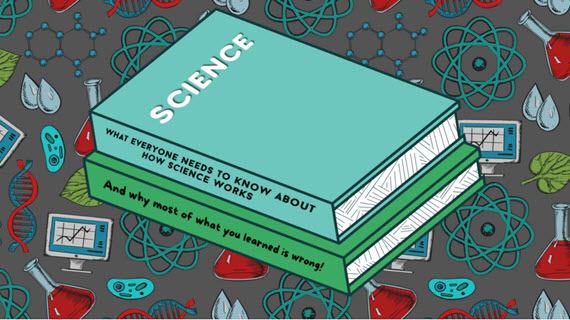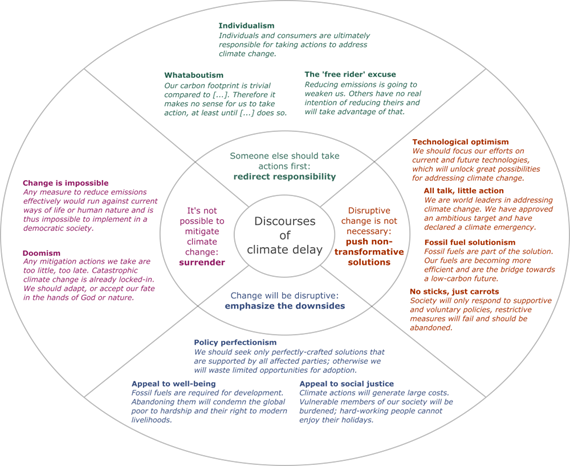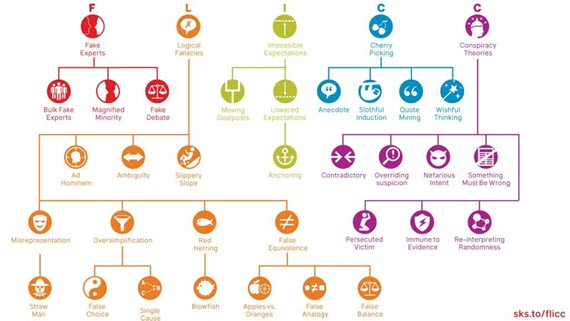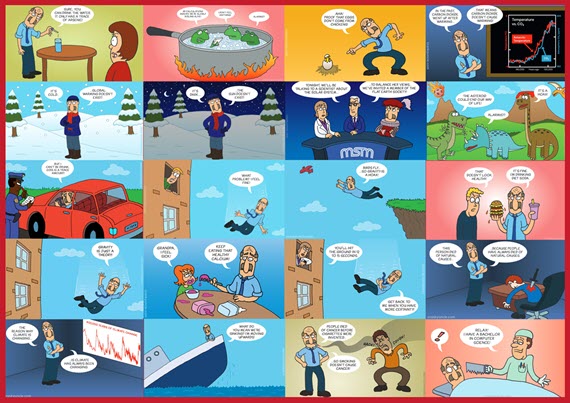Of red flags and warning signs in comments on social media
Somewhat surprisingly for what is regarded as a network of professionals, climate science misinformation is getting shared on LinkedIn, joining other channels where this is happening. Several of our recent posts published on LinkedIn have attracted the ire of various commenters who apparently are in denial about human-caused climate change. Based on their and other such comments, we compiled a list of telltale signs to be on the lookout for when reading posts or comments related to human-caused climate change or global warming on LinkedIn, other social media channels and even our own comment section. We hope you find this list helpful as the pointers can serve as warning flags to take a closer look before deciding whether to ignore or accept what has been written.
- The scientific consensus on human-caused global warming is questioned or even attacked outright, even though the basic statements that global warming is real and is mostly caused by humans due to the continued burning of fossil fuels can be called a settled fact - the facts are at least more than settled enough to base our decisions on. Legit discussions can obviously happen about what we should do. For more, please read our explainer about a scientific consensus.
Several studies have shown - depending on what you look at - that the level of agreement in the scientific literature and amongst climate scientist about the major points ranges from 91-100% - usually in the high 90s.When reading comments that provide references, readers should keep in mind that finding references from the 1-3% while ignoring the other 97-99% is a prime example of "cherry picking".

- Reactions via the „laugh“ icon on serious topics like human-caused climate change could either have happened accidentally (unlikely) or be a sign that the commenter doesn‘t quite (want to) grasp or accept scientific findings on the topic (quite likely).
- Comments making claims which seem to contradict our large list of rebuttals will in most likelihood be wrong or misleading or will not rely on scientific research published in high-quality peer-reviewed journals. If in doubt, please head over to sks.to/arguments and check for yourself.
- Comments rattling off many long-debunked myths - i.e. gish-gallops - have the sole aim to waste everybody's time and confuse people. They are best ignored.
- Comments where terms like "the science" are put in scare quotes might also be an indication that the commenter doesn‘t really know what s/he is talking about. Melanie Trecek-King's article "Science: What it is, how it works and what it means" provides a neat explanation which might be worth sharing in those cases.

- Comments making unsubstantiated absolute claims - e.g. "all models have been proven wrong…" - can be safely ignored (to see why the example is wrong: sks.to/model)
- Comments with links to blog posts or other sources may need some more checking, and if they go to blogs published by people or organizations with an entry in DeSmog's very helpful research database, caution is advised. It doesn't necessarily mean that everything written is wrong, but it nonetheless serves as a warning flag.
- Comments "just asking questions" (as defined in RationalWiki) are rarely sincere and it might be worth checking if there's a pattern of such questions in different threads by the same commenter(s).
- Sometimes a commenter's job or tagline can also give a clue. If there's a relationship to anything having to do with the fossil fuel or mining industries, whatever is being written might need to be read with a suitably large grain of salt.

- Comments may include wording typical for the "discourses of climate delay" which may contain a kernel of truth but which still serve the ultimate goal to delay taking meaningful action. These can include mentions of "fossil fuels will always be needed" or "wait until China or India do something".
- Comments including ad hominem attacks can safely be disregarded as the commenter(s) posting them have already lost the argument. It is basically just a means to change the topic from facts or science to personalities.
- Comments with hashtags like "climatescam" or "climatehoax" show conspiratorial thinking and can also be disregarded.

- Comments exhibiting any of the tell-tale techniques of science denial - "FLICC" for "fake experts", "logical fallacies", "impossible expectations", "cherry picking" and "conspiracy theories" - usually make claims which don't stand up to scrutiny but hope that you don't notice!
Want to check, how good you are spotting these techniques? Here are a few Cranky Uncle cartoons depicting some of the them. For more training, we recommend the Cranky Uncle game.

Regular SkS participants familliar with our Comments Policy will recognize that many of these red flags and warning signs are the kind of things that the Comments Policy is designed to discourage like excessive repetition, sloganeering (simple assertion of a myth already debunked), accusations of deception, ad hominems, profanity or inflammatory tone.
Did we miss any warning signs? If we did, please let us know in the comments and we may amend the list as needed.
Posted by BaerbelW on Friday, 14 June, 2024

